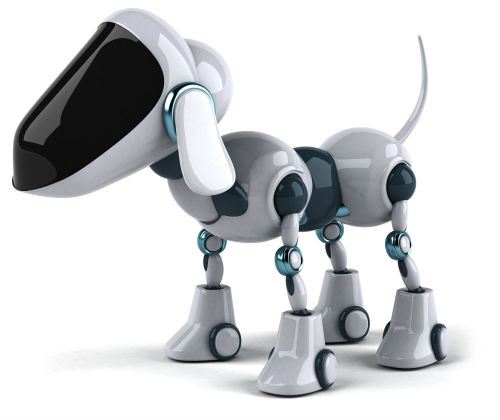A commercial comes on while you’re watching the newest episode of your favorite TV show and more often than not, it’s for a product or service you don’t need. What do you do? You use commercial breaks to grab a snack, finish a text message, or see what is in your social newsfeed. By the time your attention returns to the screen, you’ve missed virtually all the commercials and are ready to refocus on your show.
This is great if you’re a TV viewer, but money down the drain if you are an advertiser. And even if you were watching every commercial intently, TV’s never been the best medium for truly targeting ads to the right viewer at the right time.
What if we were able to target ads to the right consumers on a global scale and actually keep their attention?
Machine learning and artificial intelligence are enabling digital marketing to continually and adaptively aim their messaging to consumers online in ways that truly draw their attention – and maintain it.
What Are Artificial Intelligence and Machine Learning?
According to Marvin Chow, Vice President of marketing at Google, artificial intelligence is the field of study focused on making machines adaptive and able to solve problems as well as humans can.
Integral to artificial intelligence is machine learning, which enables computers to learn without programming them to do so.
Machine learning is similar to how a dog learns. Trial and error, cause and effect. If you’ve trained a dog, you’ve probably used treats to reward her.
“Sit!”
“Good dog, you get a treat!”
“Uh-oh, you chewed up a shoe, no treat for you.”
The dog learns what earns something positive (treats) or something not positive (no treats). Machine learning follows this same basic idea, running through processes, learning what has positive intended effects and what does not, like a digital Pavlov’s dog!
With recent technological advances, machines are now capable of learning in a similar way. In the past, programmers would code computers to trigger specific outputs in response to specific inputs. Now, like a dog, a computer can learn to recognize something simply with repeated exposure and make decisions based off this information. For example, Yelp’s machine learning algorithms helps compile, categorize, and label images more efficiently, and Twitter is using machine learning to curate individual newsfeeds.
What Does This Mean for Marketing?
Each morning, you’re probably using the same apps on your phone and visiting the same websites on your computer. You check the weather, the traffic and get the latest news. Your online habits become completely predicable – and the devices and programs you use know your routine. As we navigate the vast digital world, our digital path of bread crumbs allows the most sophisticated algorithms in the world to build a marketable profile just for you.
According to Business 2 Community, artificial intelligence and machine learning take advantage of individuals’ online habits to enable businesses to target them with ads that are more likely to generate meaningful leads. Through intelligent digital marketing, Google’s VP of marketing explains, it’s now possible, for example, to determine a user’s color and tone preferences (as well as purchase history) to target ad campaigns with precise contextual relevance that appeals in that moment.
When using online platforms – from Google to Facebook – artificial intelligence and machine learning are delivering customized campaigns on a scale unmatched by any other medium.
Customized Content Provides More Value
Using live data, artificial intelligence and machine learning are providing consumers with content that appeals to them – and content they are more likely to engage with and follow up on – according to creative marketer Abbi Whitaker of Forbes. This means marketers will increasingly be able to deliver messaging that resonates with consumers in real time.
If you think that artificial intelligence and machine learning is still the future, well, you may be living in the past. Have you ever looked for a product and then, like magic, that same product begins to show up on other websites, in emails, and on your Facebook feed? It’s almost like someone knew exactly what you were looking for when you needed it the most. The digital machine learning dog might already be your best friend.
Digital marketers who effectively leverage this latest technology and provide their audiences with more personalized content can expect to see more engagement with ads that appeal to their tastes and points of view.
Where Is Machine Learning Headed?
According to Jeffry Nimeroff, CIO at Zeta Global, machine learning is able to help marketers find “nuggets of ‘predictive’ knowledge in the waves of structured and unstructured data.” With these new forms of information, the applications of machine learning are virtually boundless. Nimeroff explains:
Machine learning techniques are being used to solve many diverse problems, and we stand to benefit as we move towards a world of hyper-converged data, channels, content, and context — having the right conversation at the right time with the right person in the right way.
Nimeroff thinks machine learning is likely to enhance digital marketing in the following ways: 
- Automated data visualization – the visualization of relationships in data to boost confidence – will become increasingly sophisticated and user-friendly.
- Greater content analysis is likely to lead to better marketing conversions.
- Incremental machine learning techniques will lead to real-time adaptive enhancements to marketing execution.
- Marketing professionals will become more effective as they boost their understanding of machine learning.
Digital marketing, along with the artificial intelligence and machine learning that are redefining it, enables digital marketers to appeal to individual consumers on programmatic and contextual levels at an unprecedented scale.
Forget TV commercials. National Positions is ready to take you to the next level of targeted, intelligent digital marketing. Are you ready to take advantage of artificial intelligence and machine learning? Contact National Positions and let’s get started.